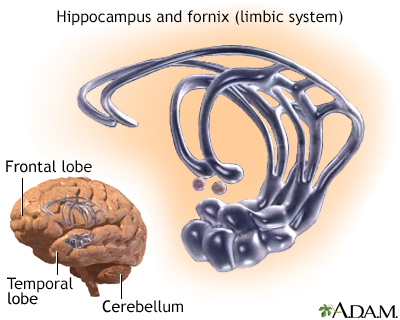Yawning Epilepsy

What is Yawning Epilepsy?
Yawning epilepsy, also known as reflex epilepsy triggered by yawning, is a rare form of epilepsy characterized by seizures that are provoked by or associated with yawning. Yawning itself is a common physiological reflex that involves opening the mouth wide and taking a deep breath, often associated with feelings of tiredness or boredom. However, in individuals with yawning epilepsy, the act of yawning can trigger seizures.
Who's at risk for Yawning Epilepsy?
Yawning epilepsy can affect individuals of any age, but it is most commonly reported in children and adolescents. The exact cause of yawning epilepsy is not fully understood, and there is limited research on the specific risk factors associated with this condition. However, individuals with a personal or family history of epilepsy may have a higher risk of developing reflex epilepsy triggered by yawning.
What causes Yawning Epilepsy?
The underlying cause of yawning epilepsy is not well-established. It is believed to be related to abnormal electrical activity in the brain, similar to other forms of epilepsy. Yawning itself is thought to trigger seizures in susceptible individuals due to the stimulation of specific areas of the brain involved in the yawning reflex.
How does Yawning Epilepsy start?
Yawning epilepsy typically starts in childhood or adolescence. The seizures are triggered by the act of yawning and can occur immediately after yawning or within a short period afterward. The seizures may manifest as focal seizures, involving specific areas of the brain, or generalized seizures, affecting the entire brain.
What are the symptoms of Yawning Epilepsy?
The symptoms of yawning epilepsy are characterized by seizures that occur in association with or immediately after yawning. The type and severity of seizures can vary among individuals and may include:
- Focal seizures: These seizures originate in a specific area of the brain and can cause localized symptoms such as twitching, jerking movements, sensory disturbances, or changes in consciousness.
- Generalized seizures: These seizures involve the entire brain and can cause loss of consciousness, muscle rigidity, convulsions, or tonic-clonic movements affecting the entire body.
It's important to note that individuals with yawning epilepsy may not experience seizures every time they yawn, and seizures triggered by yawning may be the only type of seizures they experience.
How is Yawning Epilepsy diagnosed?
Diagnosing yawning epilepsy involves a thorough evaluation by a healthcare professional, typically a neurologist specializing in epilepsy. The diagnostic process may include:
- Detailed medical history: The healthcare professional will inquire about the frequency, duration, and characteristics of the seizures, as well as any triggering factors, including yawning.
- Electroencephalogram (EEG): This test records the electrical activity of the brain using electrodes placed on the scalp. An EEG can help identify abnormal brainwave patterns associated with seizures and determine if yawning triggers epileptic activity.
- Video-EEG monitoring: Continuous video recording combined with simultaneous EEG monitoring can capture the occurrence of seizures in real-time and help correlate them with yawning.
- Additional tests: In some cases, other imaging tests, such as magnetic resonance imaging (MRI), may be performed to evaluate the structure of the brain and rule out other underlying causes of seizures.
How can Yawning Epilepsy be treated?
The treatment of yawning epilepsy aims to reduce the frequency and severity of seizures and improve the individual's quality of life. Treatment options may include:
- Anti-seizure medications: Medications, such as antiepileptic drugs (AEDs), may be prescribed to help control seizures and prevent their occurrence. The specific medication and dosage will depend on the individual's seizure type and overall health.
- Lifestyle modifications: Identifying and avoiding triggers, such as excessive fatigue or sleep deprivation, that may increase the likelihood of yawning and subsequent seizures can be helpful in managing the condition.
It's important for individuals with yawning epilepsy to work closely with a healthcare professional to determine the most appropriate treatment plan based on their specific needs and seizure characteristics.
What complications may occur with Yawning Epilepsy?
The complications associated with yawning epilepsy can vary depending on the type and severity of seizures experienced by the individual. Some potential complications may include:
- Injury during seizures: Seizures can cause loss of consciousness or muscle rigidity, which may lead to falls and injuries, such as bruises, fractures, or head injuries.
- Impaired quality of life: Frequent seizures and the need for ongoing treatment may affect an individual's daily activities, social interactions, and overall well-being.
Regular medical follow-up and adherence to treatment can help minimize the risk of complications and improve overall seizure control.
How can I prevent Yawning Epilepsy?
Since the underlying cause of yawning epilepsy is not fully understood, specific prevention strategies targeting the condition itself are not available. However, certain measures may help reduce the frequency or severity of seizures, including:
- Adherence to treatment: Taking prescribed anti-seizure medications as directed by a healthcare professional is essential for managing yawning epilepsy and preventing seizures.
- Identifying triggers: Working with a healthcare professional to identify and avoid triggers that may increase the likelihood of seizures, such as excessive fatigue or sleep deprivation, can be beneficial.
It's important for individuals with yawning epilepsy to develop a seizure management plan in consultation with a healthcare professional, which may include specific strategies to address their unique triggers and needs.
Where can I go for more information on Yawning Epilepsy?
For more information on yawning epilepsy, it is recommended to consult with reputable epilepsy organizations, such as the Mayo Clinic or local epilepsy support groups. These organizations can provide information, resources, and support for individuals with epilepsy and their families. Additionally, seeking guidance from neurologists or epileptologists who specialize in the diagnosis and treatment of epilepsy can provide valuable insights and personalized information regarding yawning epilepsy.

